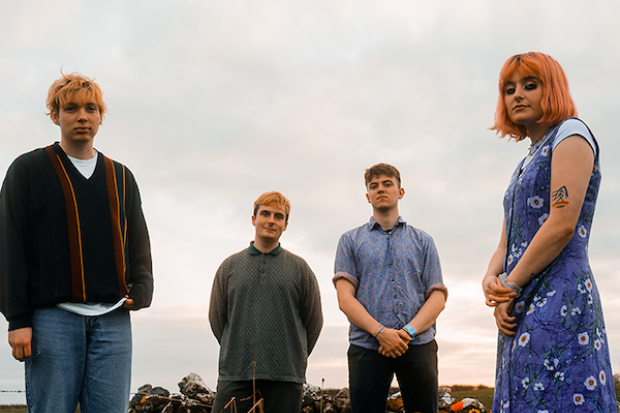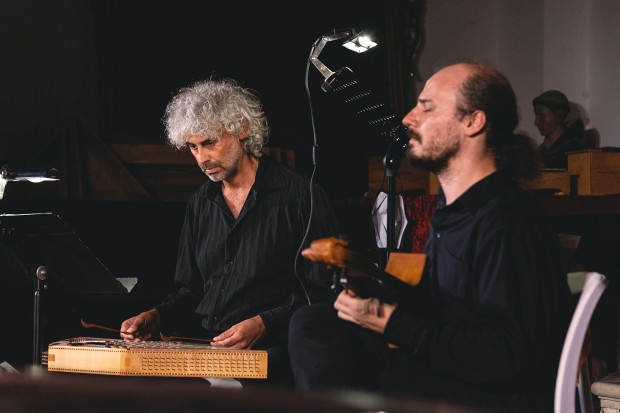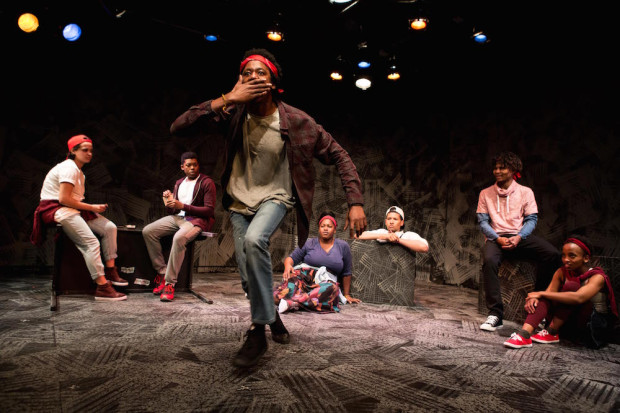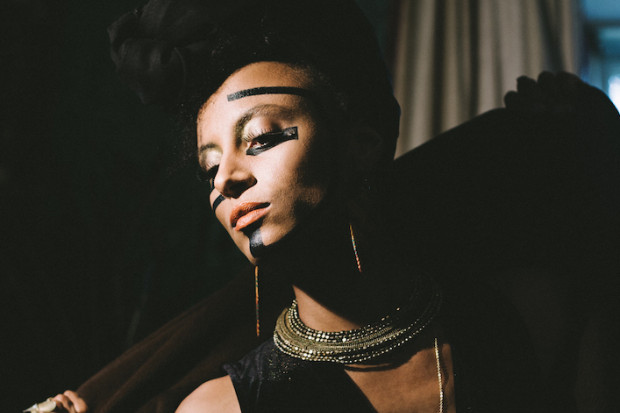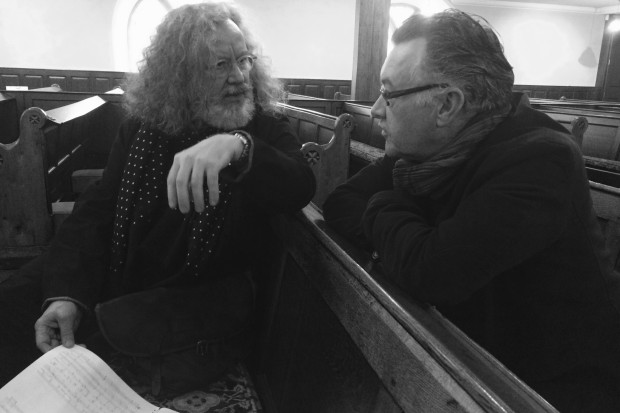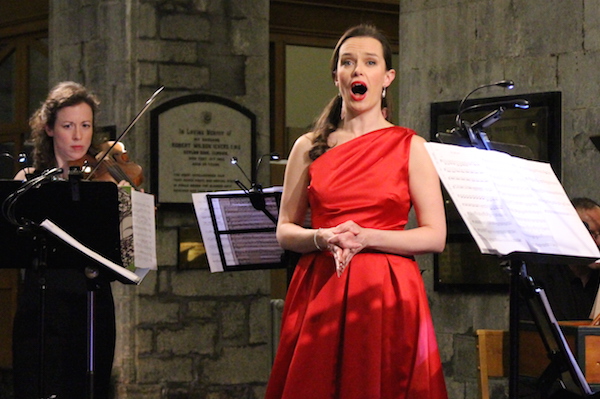
Violinist Claire Duff and mezzo-soprano Sharon Carty at Galway Early Music Festival (Photo: Galway Early Music Festival)
Travels with My Aria
As voters made their way to polling stations to decide who shall represent them in Europe, Sharon Carty and a baroque ensemble brought a bit of the continent to St Nicholas’ Collegiate Church in Galway on a balmy May evening. For the opening event of the Galway Early Music Festival and the closing concert of Music for Galway’s season (the night was a partnership between the two), Carty presented a showcase of songs commonly used as ‘insertion arias’, a practice where singers would insert an aria into an opera to display their vocal virtuosity. These came to be known as ‘suitcase arias’ as the singer would pack these songs in their suitcase when they travelled, leading to composers adapting the piece for their opera, and, in some cases, it becoming a permanent feature of the work.
The suitcase arias were often the ‘party pieces’ of a singer (as Carty describes them in her programme note) and similarly so for the Kildare artist, each one showing off different elements of her mezzo voice. The Arne aria ‘Amid a thousand racking woes’ from Artaxerxes with its quick tempo and long melismatic passages forced Carty straight into a commanding vocal display that drew the audience in. In total contrast was Broschi’s ‘Se al labbro mio non credi’ from Artaserse where the deep rich tones of her voice carried over the audience and filled the hollows of the church. The final piece before the interval was the demanding ‘Che disse, che ascoltai? Addio, addio o miei sospiri’ from Gluck’s Orfeo ed Euridice in which Carty’s control of resonance and pitch in the a cappella section towards the end of the piece earned her a triumphant applause.
Good and bad characters
Between the arias, Carty gave the audience a small history lesson on what she had just sang or was about to sing. These interludes went far beyond basic programme note material as she told stories about the singers who sang the arias, the scandals they caused, and the composers’ views. The story surrounding ‘Sposa, non mi conosci’ from Merope composed by Giacomelli is particularly interesting. The piece is essentially the aria ‘Sposa, son disprezzeta’ from Vivaldi’s Bajazet with only minor changes made by the composer. In Vivaldi’s opera, he used his own arias for ‘good characters’ and pieces sung by the villains or ‘bad characters’ were taken from other composers. So, while the practice of inserting arias is commonly associated with the singers themselves, composers too toyed with it until the 1800s when they started to want their scores to be entirely their own work. These stories created a genuine connection between the audience and the singer, making the evening a more intimate affair.
The programme also featured a passionate performance from Carty of Vivaldi’s ‘Gelido in ogni vena’ from Farnace and a selection of beautifully played instrumental pieces, including Handel’s Sonata in C minor, HWV 386a Op. 2 No. 1, performed by the ensemble of Claire Duff and Marja Gaynor on violins, Lisa Dowdall on viola, Margaret Doris on violoncello and David Adams on harpsichord. The ensemble stood around Carty and their joy in performing the material, and with each other, was evident in each piece.
Perhaps the performance that delighted the audience the most was a Telemann suite for two violins based on the book Gulliver’s Travels where sections of the story are told through short episodes. Duff and Gaynor physically and musically embodied the characters so vividly as to evoke laughter from the crowd. This piece was a surprise to me and added a playful element to the evening. Gluck’s Orfeo ed Euridice bookended the concert, beginning with the Overture and closing with the striking final aria by Orfeo, ‘Che farò senza Euridice’.
Carty showed layers of colour in her voice and acting ability and the evening provided the audience with more than just beautiful arias but also an informative and immersive early music experience. It was an enriching event brought about in large part by the bond Carty and the ensemble created with the audience over the course of each piece.
The ‘Suitcase Arias’ concert took place on 24 May and was presented by the Galway Early Music Festival and Music for Galway. For more, visit http://galwayearlymusic.com and www.musicforgalway.ie.
–
This is the fourth review published as part of the Journal of Music/Galway City and County Music Writer Mentoring Scheme 2019 and is supported by Galway City Council and Galway County Council Arts Offices. Over the course of the year the editorial team of the Journal of Music will work with six new writers – Rachel Deckard, Massimo Cattaneo, Jake Tiernan and Kerri Haberlin (Galway City), and James Fleming and Tara Broderick (County Galway) – and publish their reviews of music in Galway.
Read more about our previous Music Writer Mentoring Schemes here.
Published on 19 June 2019
Tara Broderick is a teacher and graduate of CIT Cork School of Music. She was a participant in the Journal Music's 2019 Galway City and County Music Writer Mentoring Scheme.













